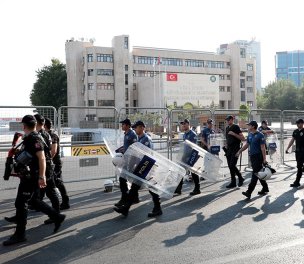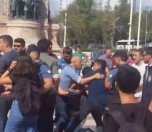Click to read the article in Turkish
The Congress of Local and National Authorities of the Council of Europe has reported a "generally degrading situation" with regard to local democracy in Turkey, finding that the trustees appointed by the government to replace elected mayors are contrary to the international law.
In its latest report on Turkey's application of the European Charter of Local Self-Government, the Congress has welcomed the "impressive turnout" in local elections in 2019, which stood at 84 percent, defining it as "one of the highest rates across the Council of Europe". According to the CoE Congress, this has "demonstrated a strong interest in local self-government".
It has also expressed "particular concerns on a number of issues, including the fact that the government continues to suspend mayors when a criminal investigation is opened against them – based on an overly-broad definition of terrorism – and replace them with non-elected officials".
"This seriously undermines the democratic choice of Turkish citizens and impedes the proper functioning of local democracy in Turkey," the Congress has said and made the following calls in this context:
Among other things, the Congress calls on the Council of Europe's Committee of Ministers to ask the Turkish authorities to modify the definition of terrorism in the current domestic legislation, in a way not allowing for overly-broad interpretation, to stop suspending mayors without court decisions and to ensure that winning candidates can effectively carry out their mandate.
The Congress also undertakes to strengthen its dialogue with the national authorities, the Turkish delegation to the Congress and the Union of Municipalities of Turkey in order to boost local democracy in the country, in line with the European Charter.
Details from the report
The Congress has shared the following observations:
"Apart from the problems in Istanbul that have been referred to, there were also other negative outcomes of the local elections:
"Candidates belonging to the HDP [Peoples Democratic Party] won the mayoral elections in 65 municipalities located in the south-east of the country, but the provincial electoral administration refused to grant to 6 of HDP co-mayors (officially nominated ones) the required 'certificate' of election (mazbata) which is a prerequisite to entering the position of mayor, on the ground that they were unfit for the position since they had been previously dismissed from their jobs by means of Central Government decrees under emergency rule.
"Instead, that certificate was eventually granted to candidates from other parties who were placed in second position in the electoral results, and therefore to candidates who had not won the elections.
"During the first two parts of the visit, the delegation was informed that, in the run-up to the March 2019 municipal elections, 50 Kurdish 'co-mayors' were still in prison, 29 of whom had been under pre-trial arrest for about two years. Furthermore, the delegation learned the status of various local elected representatives from the south-east of the country.
"This is another highly controversial and worrying feature of the Turkish system of local government and is closely linked to the suspension of mayors. After the Ministry of the Interior takes the decision to suspend a mayor who is under criminal investigation, the government appoints a 'trustee' or temporary administrator, a substitute who takes care of the local administration and takes up the running of the city.
"This person may be the governor (vali) of the corresponding province, in the case of metropolitan municipalities, or the vice-governor or district governor in the case of district or regular municipalities, or another governmental official appointed by Ankara. They are acting mayors, also known as 'care-takers' or 'curators'. The trustees run the municipality with the exclusive assistance of certain administrative officials, without convening the local council. The council, for its part, is prohibited from convening on its own motion, and the competences and functions of the municipal council are discharged by the municipal executive committee.
"The system of trustees comes to an end when new local elections are held in the country. Therefore, all the trustees appointed in 2016-2017 completed their functions after the March 2019 elections. However, new trustees were appointed shortly after such elections, to replace newly dismissed mayors. For instance, by 31 August 2019 trustees were appointed in 16 local authorities (among which are three metropolitan municipalities).
This element of the local landscape is very controversial, for legal and democratic reasons and for the extensive use of this practice by the central government in the south-east of the country: from September 2016 to February 2018, the local leaders were removed in 94 of the 102 local governments run by the DBP party (HDP sister party in local politics at that time), including 3 metropolitan and 10 provincial municipalities in the south-east of Turkey, and were replaced by trustees.
"In light of the foregoing, the Congress requests that the Committee of Ministers invite the Turkish authorities to:
"modify the definition of terrorism in the current anti-terror legislation, so that this concept is defined in a way not allowing for an overly broad interpretation and ensuring a strict governmental enforcement and respect of human rights and values of representative democracy;
"ensure that the candidates who were admitted to run in the elections and won them can effectively enjoy their right to carry out their mandate".
Trustee-appointed municipalities
At the local elections on March 31, 2019, the HDP won 65 municipalities in the Kurdish-majority provinces. While six of the elected mayors were not given their certificates of election, trustees were appointed to 3 metropolitan, 5 provincial, 45 district and 12 town municipalities:
- 19 August 2019: Van, Mardin and Diyarbakır Metropolitan Municipalities
- 17 September 2019: Diyarbakır Kulp Municipality
- 18 September 2019: Erzurum Karayazı Municipality
- 18 October 2019: Hakkari Central Municipality, Hakkari Yüksekova and Mardin Nusaybin Municipality
- 22 October 2019: Van Erciş Municipality, Diyarbakır Kayapınar Municipality, Diyarbakır Bismil Municipality and Diyarbakır Kocaköy Municipality
- 29 October 2019: Şırnak Cizre Municipality
- 2 November 2019: Van Saray Municipality
- 4 November 2019: Mardin Kızıltepe Municipality
- 9 November 2019: Van İpekyolu Municipality
- 13 November 2019: Şırnak İdil Municipality, Diyarbakır Yenişehir Municipality, Diyarbakır Hazro Municipality and Tunceli's Akpazar Town Municipality
- 16 November 2019: Şanlıurfa Suruç Municipality, Mardin Mazıdağı Municipality, Mardin Derik Municipality, Mardin Savur Municipality
- 7 December 2019: Van Muradiye Municipality, Van Özalp Municipality, Van Başkale Municipality and Batman İkiköprü Town Municipality
- 18 December 2019: Muş Varto Municipality, Muş Bulanık Municipality and Muş Erentepe Town Municipality
- 21 December 2019: Diyarbakır Sur Municipality
- 23 March 2020: Batman Central Municipality, Diyarbakır Ergani Municipality, Diyarbakır Eğil Municipality, Diyarbakır Lice Municipality, Diyarbakır Silvan Municipality, Bitlis Güroymak Municipality, Iğdır's Halfeli Town Municipality and Siirt Gökçebağ Town Municipality
- 15 May 2020: Iğdır Central Municipality, Siirt Central Municipality, Siirt Baykan Municipality, Siirt Kurtalan Municipality, Muş Altınova Town Municipality
- 24 June 2020: Elazığ Sarıcan Town Municipality
- 13 July 2020: Ağrı Diyadin Municipality
- 2 October 2020: Kars Merkez Municipality
- 2 March 2021: Erzurum Karaçoban Municipality
(HA/SD)




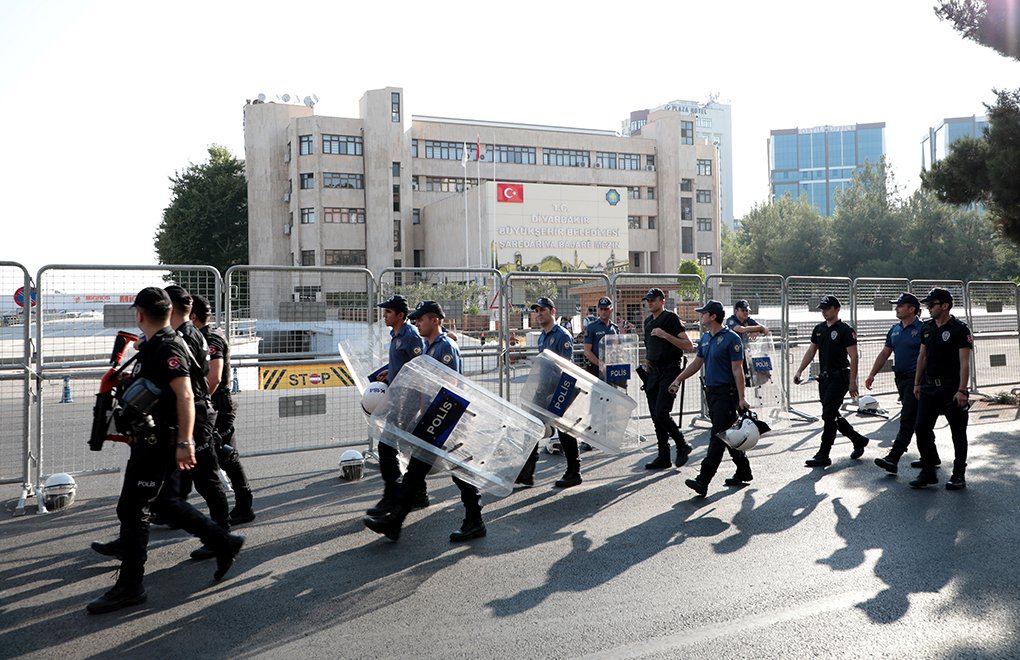
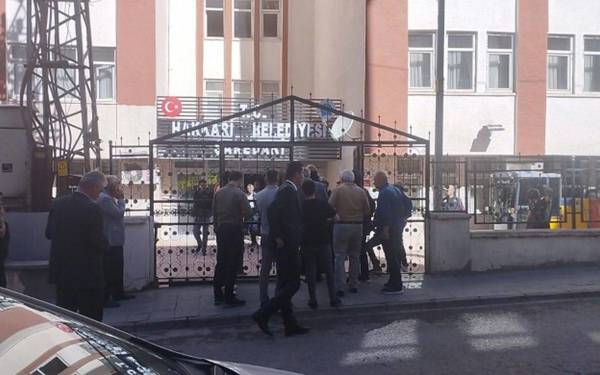
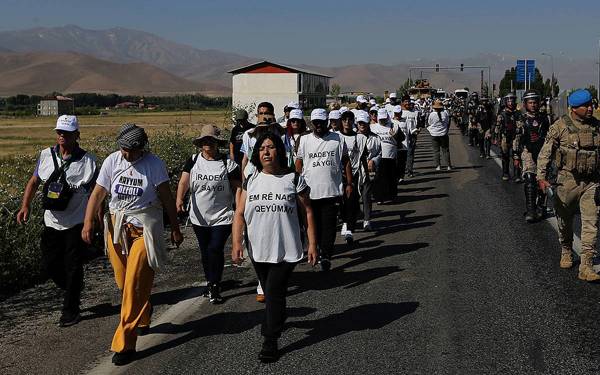
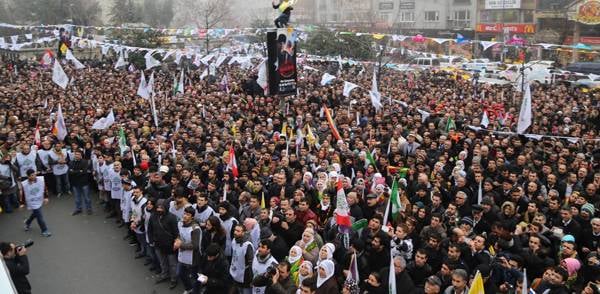
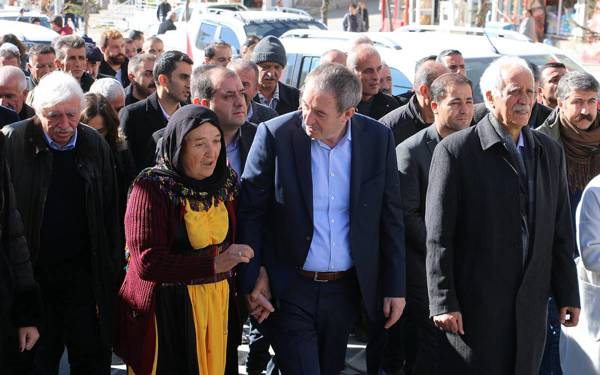
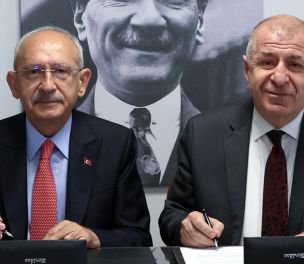
.jpg)
